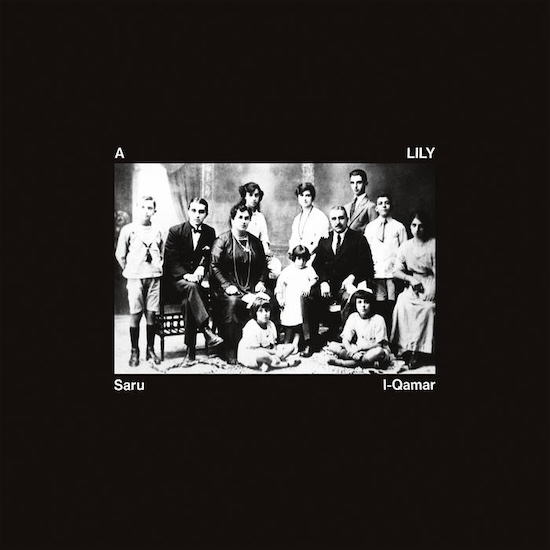Over a pool of unassuming electronics cracks a voice, strong but fraying across time and space, textured by the manner of its recording. Meaning obscured by language, it connects on a deeper level. Below and before words, the human music in it carries an inchoate feeling, dissolving its otherness. The music warms and softens. Notes bounce and echo as the voice begins to distort and separate. At the close there is only the voice, dissipating into warp and squelch. Its title ‘Żeżina Ddoqq is-Sħab’ translates as ‘Zezina Plays the Clouds’.
The latest from James Vella’s long running A Lily project (and first for his own Phantom Limb label), Saru l-Qamar is constructed around vocals from home recordings made by Maltese émigrés. From the 60s onwards many would record themselves relating news and messages, often in the traditional song form of għana, to send back to family. UK based but of Maltese heritage, Vella was given access to these tapes through the archive of Magna Żmien a grassroots project begun in 2017 to digitise and preserve home made audio visual material, building a community record.
Vella brings an impressionist response to his sources, lifting them into the evocative space of memory and dream on clouds of glowing hardware synthesis. Holding their mystery and humanity. His compositions here are less busy than on his last couple of albums, drawing from the recordings themselves, allowing them centre stage. Saved from floating away on the tide of twentieth-century flotsam but dislodged from their original function they enjoy a folk historical half-life. These voices are not mere colourful decoration then, but Vella also avoids the opposite fate of turning them into an anthropological exhibit by engaging with their basket of emotions. Absence and longing, regrets and hope.
The nature of the individual clips and their use varies. The bolder singing on ‘Ħajti Kollha, Qalbi’ or ‘Tħallinix’ contrasts with the smeared murmuring running through ‘Nitolbu Lil Dawk Li Lejlu’. A clear vocal at the beginning fades and echoes forever in the second half of ‘Erba_ Aħwa’. You can’t really sing along or whistle the tunes. It’s a mood that envelops you. Ambient, seemingly wordless humming vocalisations are submerged by pinging shining notes on ‘Sirna l-Qamar’.
The last song ‘Issa, Kuljum, Għal Dejjem Żgħażagħ’ seems to bubble up from the floor of the Mediterranean, an effect that oddly recalls the ghostly vocal fragments afloat in Burial’s productions. As the track fades out we hear a group of people singing. A lead voice steps forward but behind it we hear both laughter and the voices of children, a final, unadorned, multi-generational moment.


